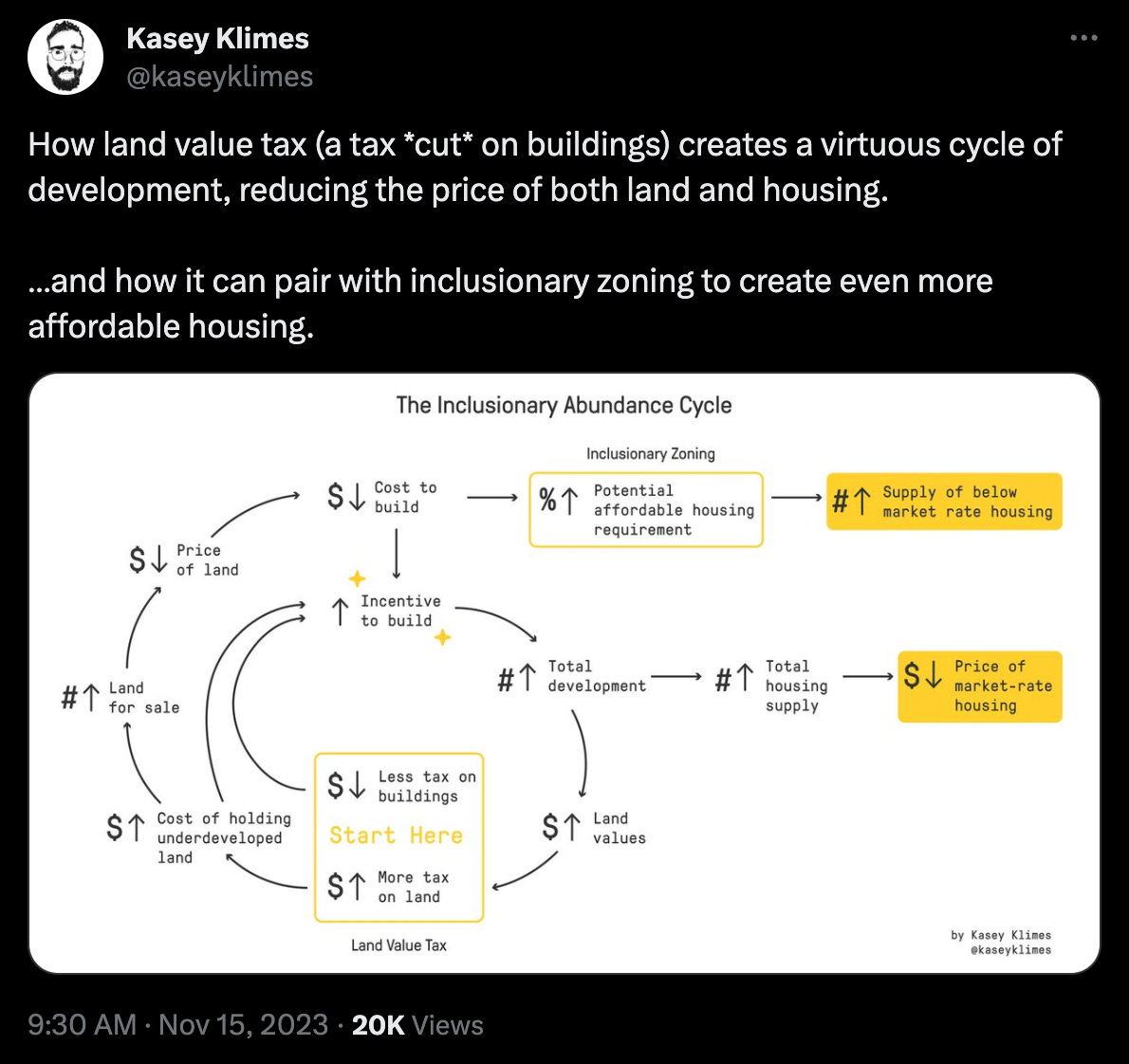Storytelling Entropy & Fandoms
Also: Resurgence of Georgism, Community Notes Deep Dive, and Big Post-Punk
I must say, I’m enjoying the general discourse around mega IP recently. Some people call it narrative debt.
I recently wrote about how a story world inevitably protocolises to tell more stories. That’s another metaphor to use: oozification and protocolisation.
LSOO uses the metaphor of order and disorder (through entropy). In a story or a story world, is there a process of order, distillation, and compression? All story elements are necessary and nothing more. Or, is there a process of disorder, contamination, and decompression. Stories containing increasing flotsam and jetsam.
I enjoy this metaphor, because it describes a story as a process at different layers. It also doesn’t mean that expansion is negative. But, expansion should be in service of the story. LSOO gives the example of Marvel purposefully and intentfully building out the MCU over many films to culminate in an epic finale with Endgame. The phases thereafter felt uncertain and aimless, expanding without direction. Expansion can bring order and distillation if it’s a part of the process.
In part, he blames “corporate passion”: mega IP trying to cash in by finding stories for its IP. Instead of the way it should be: stories using the canvas of IP to tell a story. In part, that’s true. But, it’s not the entire reason as you can still use these canvases to find and tell meaningful and sincere stories. Stories that aren’t self-aware of its position as mega IP. Andor is such an example, or Guardians of the Galaxy 3 (an otherwise brilliant film within the recent MCU phase). Both of them are stories that use the IP as its canvas. And in both cases, they are deeply sincere. Sincerity doesn’t entail it has to be serious: just that the goal is to tell a story first.
But, it begs the question: if recent franchise attempts seem to fall flat, why is there still this appeal for what LSOO calls “meta-references to nowhere” and expansive mega IP? The ever-present appeal of callbacks, cross-overs, and intertextuality. Audiences, in some part, enjoy being Leo DiCaprio whistling at the TV screen, pointing out a reference.
A commenter on the YouTube video puts it differently:
I feel a lot of ourselves as an audience are to blame for this. We get so attached to stories that we don't ever want it to end. I sometimes feel like every single person I talk to about this kind of thing simply don't want to see their beloved stories end, and I cannot understand why, if the alternative to it actually ending is always one of gradual disinterest or actual degeneration of what it was before.
I think a key factor is looking at modern media as attempting to also be social. Media produced for the sake of telling a story, or media produced for the sake of its usage as a container for social experiences. Mega IP is often aware of its appeal as a social center. With the internet replacing our local communities with topical communities, we desire a shared narrative and references in film act like glue that keeps a shared narrative together. “Did you see that reference?!” is a conversation starter: an opportunity to either connect with someone who has watched the same media as you, or its an opportunity to expand your own community by introducing someone to something they might enjoy. It’s also why adaptations are popular.
And I think that’s where some of the discontent lies: people wanting a story but not wanting to opt into the meta context. A story that isn’t necessarily completed by going on Twitter or Reddit afterwards and reading the comments. Then there’s the crowd that wants that social context and thus tolerates the trade-off of disorder if it means that it leaves doors open for discussion. Speculation, what-ifs, and fake Chekov guns lying around fosters discussion. The meta context is a part of the appeal. The fandom is a part of the experience. If you add more noise to something, it’s more likely that you might see unexpected patterns in it.
LSOO calls it “cinema vs content”. The former wants to stand on its own: a fandom is an accidental bonus. The latter sees the fandom as a primary participant and creates stories that are aware of it.
That being said. There’s an ideal version here: expansive media universes that also uses its canvas to tell great stories. It has been done and remains possible. At the end of the day, it has to remain sincere as a story, first, even if it’s self-aware of its dual context as a film and social center for fandoms.
More Links!
Resurgence of Land Value Tax Narratives
It feels like there’s been a rising tide in Land Value Tax proposals floating around media. New York Times did an article about.
In an interview, Ms. Fairweather said she did not consider herself a Georgist, single tax and all that, but said land-value taxes were so smart that one of her favorite parts of arguing for them was they allowed her to “always be right.” They encourage housing development instead of discouraging it, she noted. They don’t discourage work or investment, like taxes on income and capital gains. They’re also hard to dodge, since land is hard to move.
I’ve always been a huge fan of it. This diagram from Kasey Klines this week is a great introduction.
The goal is to only tax land and not the property/improvements. Always enjoy the opportunity to share this. :)
NVIDIA’s internal AI
NVIDIA created an AI model of its internal organisational memory.
NVIDIA basically compressed 30 years of its corporate memory into 13B parameters. Our greatest creations add up to 24B tokens, including chip designs, internal codebases, and engineering logs like bug reports. Let that sink in.
The model "ChipNeMo" is deployed internally, like a shared genie.
Brewster Kahle famously said in 2014 that corporations are 1st gen AI. They are “slow” AI. Just as our bodies are replaced every few years with new molecules, bacteria, and everything else it, corporations have the capacity to outlive their own constitute parts long after the first people created it. The firm is a cell.
This idea to create a query-able AI model of the internal processes of a business seems inevitable (if done safely). I can’t imagine this model leaking, for example. But, regardless, it really feels like it could provide a superpower for the business to reduce internal transactions costs in the firm. I wouldn’t be surprised if an internal AI model becomes as commonplace as requiring a business email.
Community Notes Deep Dive
I dislike 95% of where Elon took X/Twitter. But, the one shining example I do enjoy is Community Notes. Yondon Fu did a great deep dive on how/why the algorithm works. It’s not perfect, but the goal of ensuring that a note is maximally helpful across a wide spectrum of viewpoints is a useful aid when misinformation is rampant.
CryptoPunks Docu Appearance
I was invited to participate in a roundtable discussion for a CryptoPunks documentary, representing FlamingoDAO. I had a lot of fun. The series so far has been great too. I’m enjoying that more of these stories are being captured.
Weekly Zora Mint
I love the colours on this week’s art. It’s only available for another day, so if you want to collect, best to do so quickly! It’s also animated, so click through.
Any mints through the link above earns the newsletter referral fees.
TVAM - Costasol EP
Huge fan of the latest TVAM EP. Big synths, big rock, big post-punk, big vibes.
That’s it for this week, friends! Enjoy a nice sunset. :)
Simon





